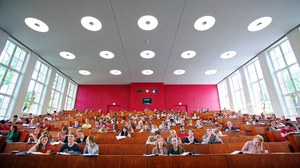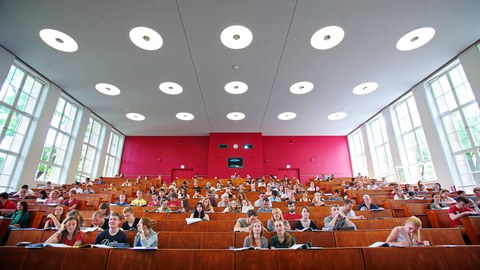Studying at the chair
Our chair provides the majors spatial economics and the transport policy for the bachelors and masters degree programs Transportation Economics.
 © Amac Garbe
© Amac Garbe
Content of our courses
Spatial Economics considers the importance of space for economic decisions. We look at regional structures and their transformation.
In the bachelor courses we focus on location theory as well as the interaction of regions and the change of regional structures. Location theory, e.g., asks for the determinants of location decisions. Additionally, we discuss different aspects of spatial economics. We use the European cohesion policy to examine the changes in regional structure, migration and regional development.
The master courses help to enhance student’s knowledge on regional economics with the help of computer exercises. On the one hand students learn how to model an urban equilibrium model and on the other hand they do their own empirical examination by using methods of econometrics.
In Transport Policy we deal with the role of state and market in transportation. The basis for that are microeconomic and macroeconomic theory and several empirical methods.
The main focus of the bachelor module Transport Policy is to familiarize students with basic economic instruments to independently analyze economic issues and policy questions in transportation. In particular students will attend the courses on economic and institutional fundamentals of transport economics as well as infrastructure and regulation.
Master students will broaden and deepen their knowledge in the fields of pricing as well as cost-benefit analysis. In addition several econometric methods will be taught.




